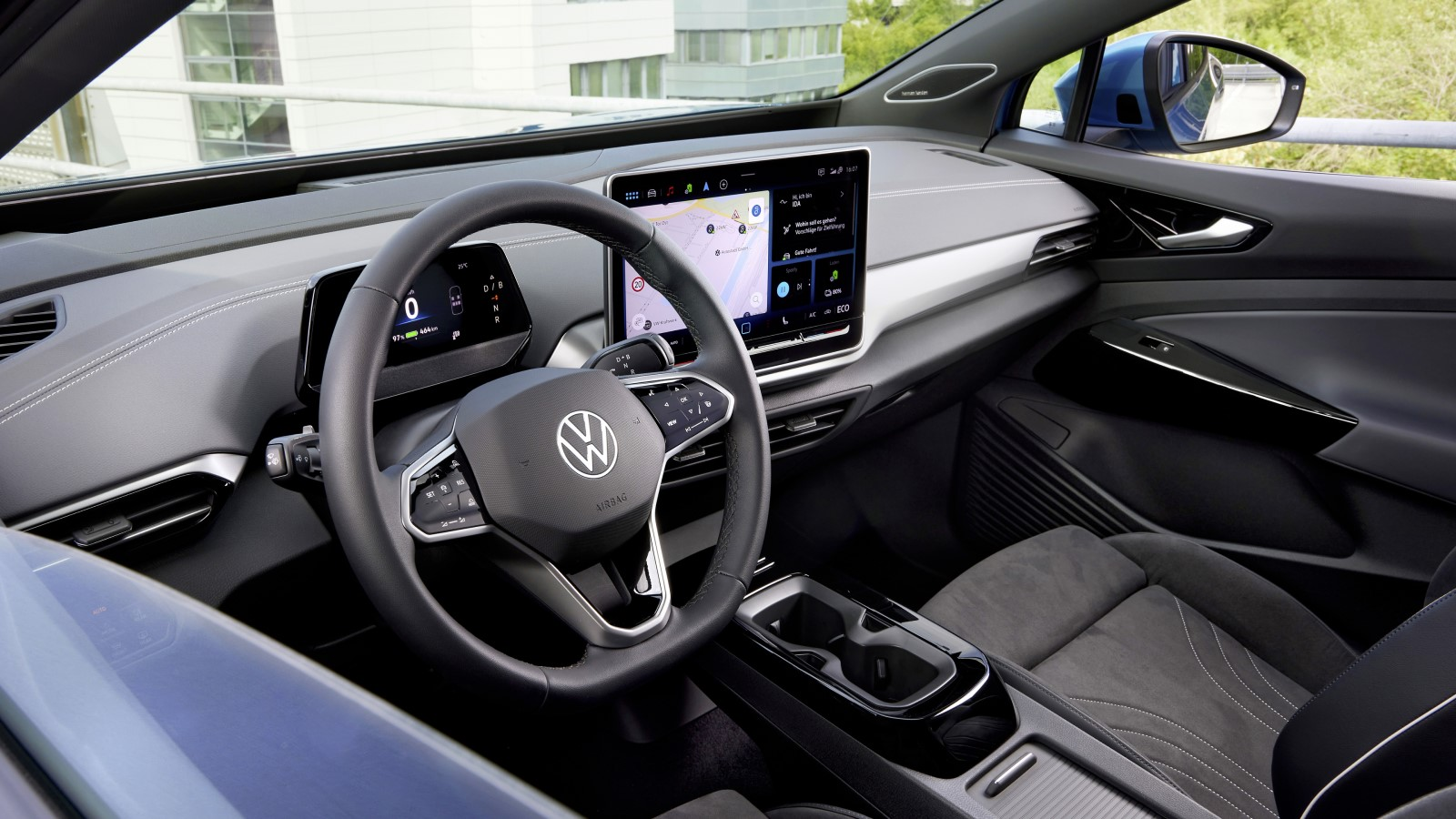VW's Lack Of Physical Buttons Could Be Causing Rise In EV Crashes
Volkswagen ID 4 owners claim that the capacitive sensors controlling the car’s cruise control are to blame for their crashes
It feels as though automakers have been on a war against physical buttons, swapping them out in favor of touch screens and capacitive sensors wherever possible. Now, it sounds like the safety implications of that switch are coming back to haunt Volkswagen with some owners blaming the lack of buttons on a spate of crashes.
Drivers of Volkswagen's ID 4 electric SUV have been complaining about the car's internal controls after the EVs were involved in a spate of crashes, reports Ars Technica. According to the site, capacitive controls on the car's steering wheel are far too easy to accidentally hit, which can cause unwanted features to switch on.
Specifically, owners have complained about the cruise control buttons, which can reactivate the system when drivers don't require it. In some cases, this causes the cars to speed up and even crash. As Ars Technica reports:
But the left side spoke operates the adaptive cruise control system, and mistakenly brushing against the "resume" button could re-engage cruise control to whatever speed it was last set, causing the car to accelerate when the driver didn't actually want that to happen. And that's exactly what a number of owners – one of whom reached out to us – suspect is to blame for a spate of crashes affecting the VW ID 4.
Many of the incidents occurred when drivers were parking, so most of the crashes happened at relatively low speeds, but three of the 13 National Highway Traffic Safety Administration crash reports that Ars reviewed involved injuries to the occupant(s). In at least one case that Ars knows of, the car's black box did not register an accident and the airbags did not deploy, presumably due to the lower speeds involved. The ID.4 sustained several thousands of dollars of damage to the battery pack.
Volkswagen told Ars Technica that it was "aware of a small number of complaints" lodged about its capacitive control. Thankfully, the capacitive controls might not be here to stay. In 2022, VW bosses promised that the controls would be phased out on newer models with a return to tactile controls made wherever possible, reports Road & Track.
The German automaker must have heard our repeated complaints about the lack of physical buttons in cars, which included tirades against the distraction they pose while driving and proof from actual scientists that buttons are safer than touchscreens.
